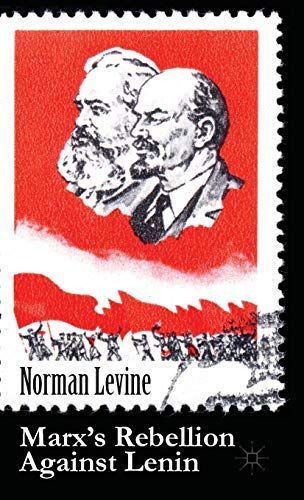
Marx's Rebellion Against Lenin
Marx's Rebellion Against Lenin is a representative of the contemporary revitalization of the thought of Marx. It fulfils this task in three ways. First, it overthrows the dialectical materialism of Engels and of Stalinist Bolshevism by exploring 18th century historical thought and illustrating how these Enlightenment historians and political theorists first explored method of historical explanation that were later adopted by Marx. It is shown that contrary to the theory of Stalinist Bolshevism, Hegel was a vital influence on Marx. Second, Levine's book represents Marx as an exponent of Classical Humanism. Marx did not define communism as a form of materialism, as economic egalitarianism, but rather related communism to the Classical ethics of Aristotle, to the Aristotelian ideas of polis citizenship and the ethics of distributive justice. Third, it is argued that the 17th and 18th Century Enlightenment was not simply a liberal center extolling property, individual rights and capitalism. Instead it is shown that the 17th and 18th century Enlightenment was divided between an Enlightenment Center and an Enlightenment Left, with the Enlightenment Left challenging the domination of capitalism and private property. Marx's Rebellion Against Lenin traces the flow of the theories of the Enlightenment Left into Marx and in doing so liberates Marxist thought from its imprisonment in 19th century materialism and relocates it within the traditions of Classical Humanism.